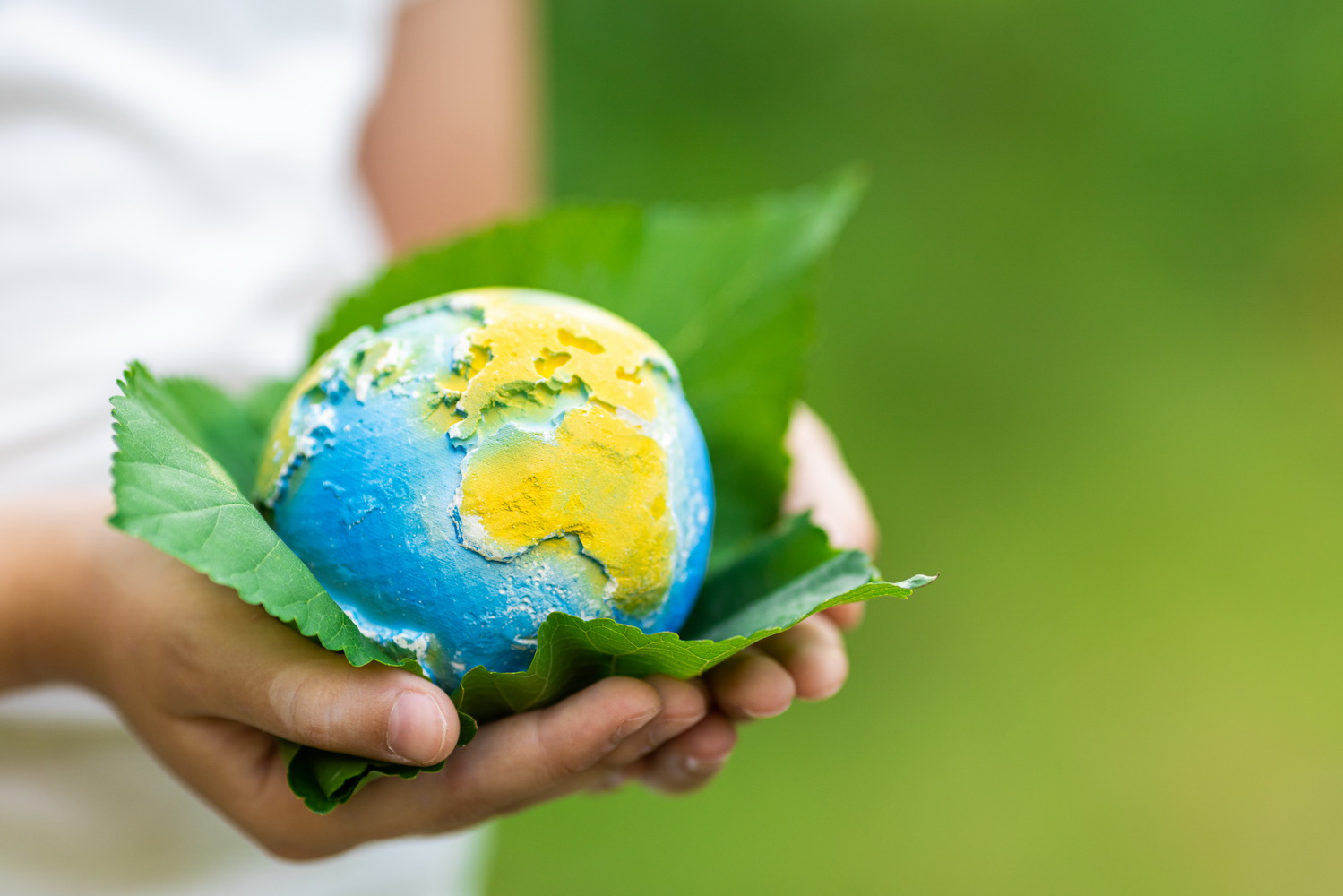Vocabulary expansion Our Planet and Environment Worksheets for Ages 3-8
6 filtered results
-
From - To
Enhance your child's vocabulary with our "Vocabulary Expansion Our Planet and Environment Worksheets for Ages 3-8." These engaging and educational printables are designed to help young learners grasp essential vocabulary related to Earth and its environment. Through fun activities, colorful illustrations, and interactive exercises, children will explore terms related to nature, weather, ecosystems, and environmental conservation. Perfect for budding scientists and environmentalists, these worksheets support language development and foster a love for our planet. Equip your little one with the words they need to understand and describe the world around them. Start building a strong foundation today!
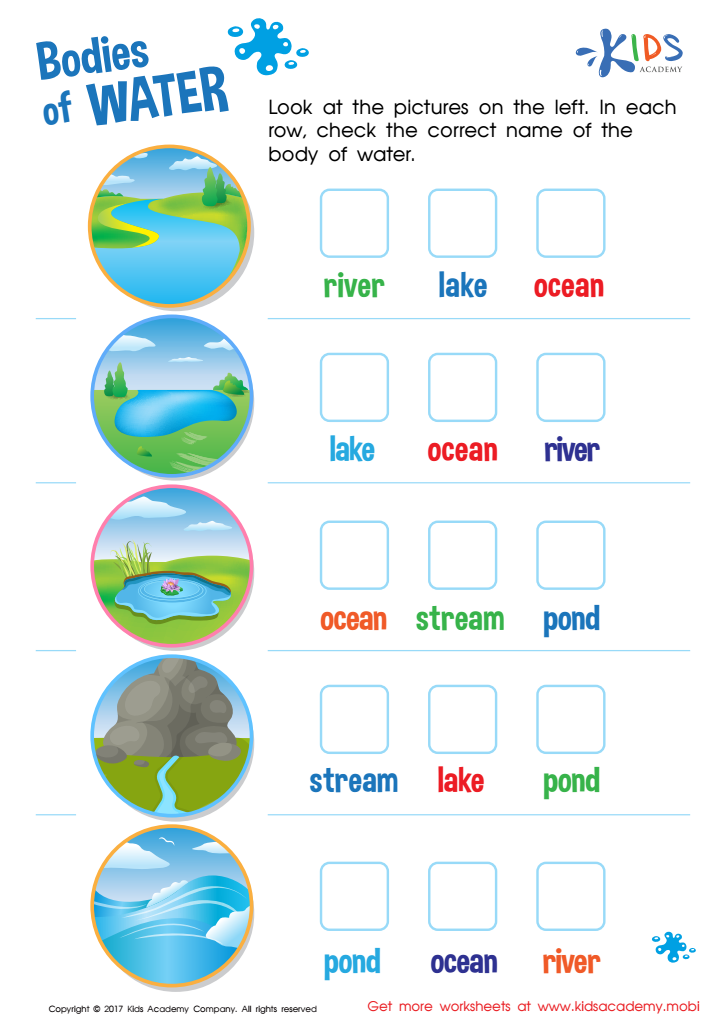

Bodies of Water Worksheet
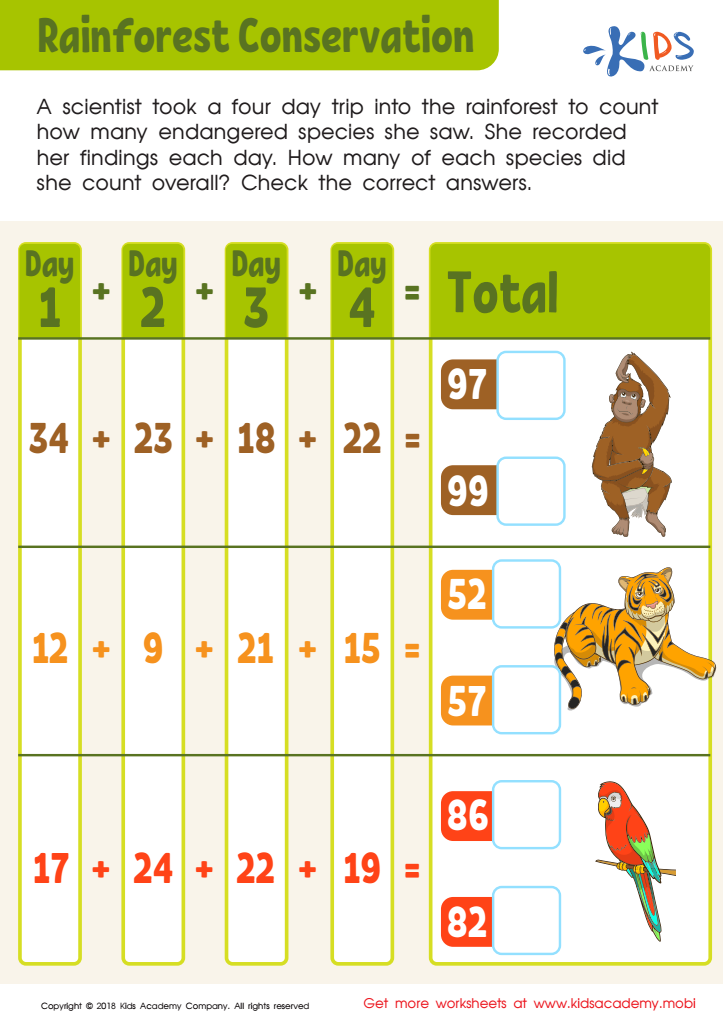

Rainforest Conservation Worksheet
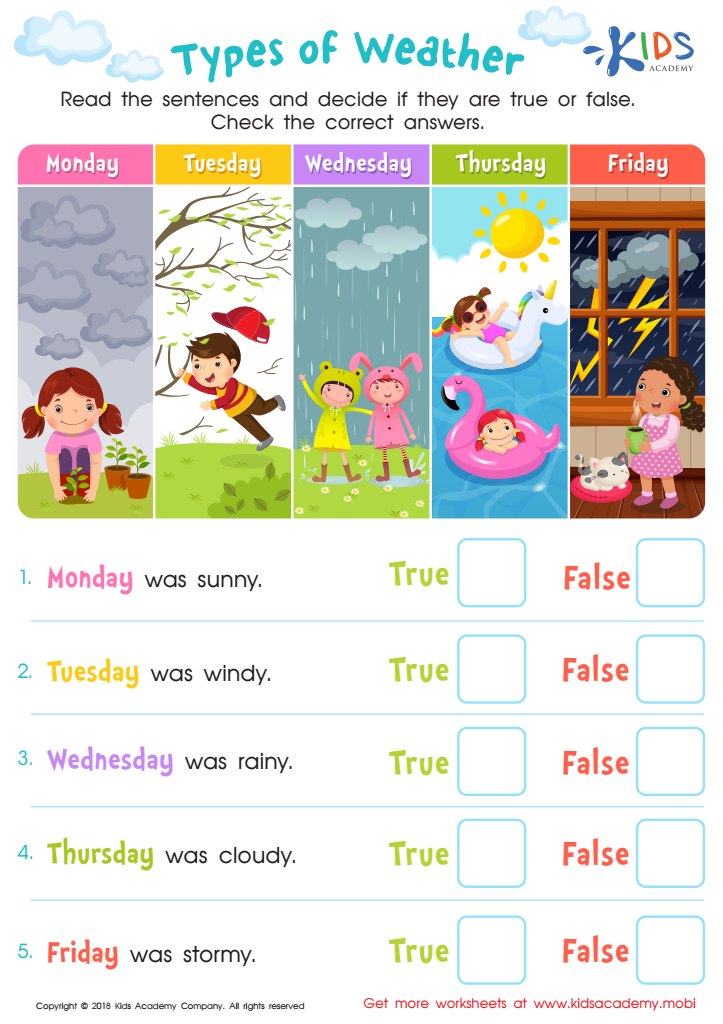

Types of Weather Worksheet
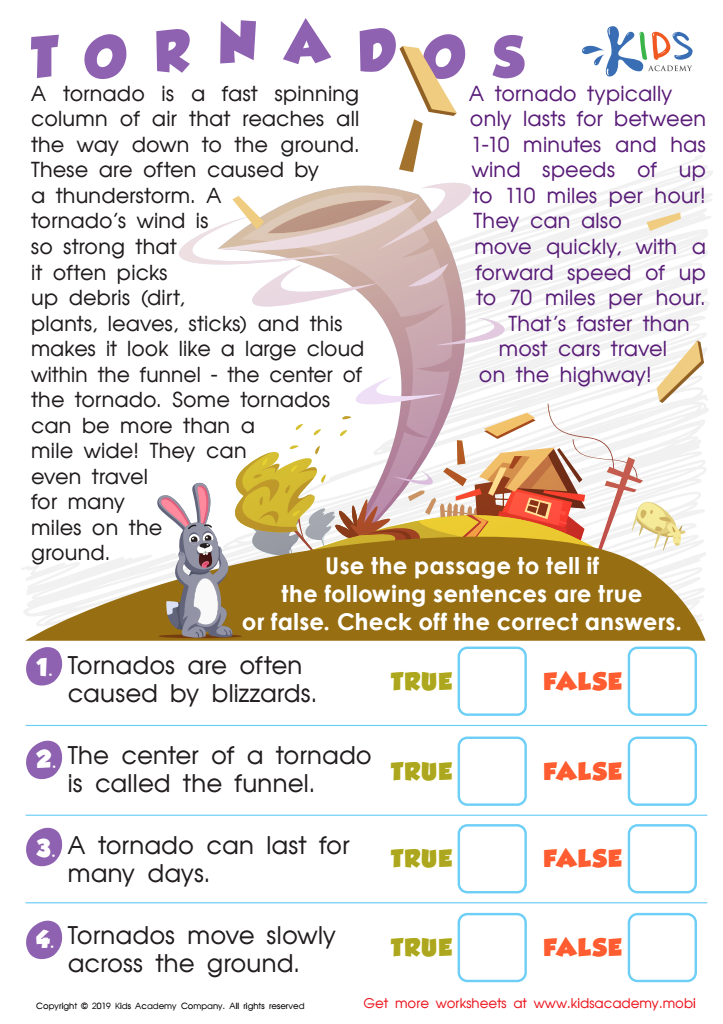

Tornados Worksheet
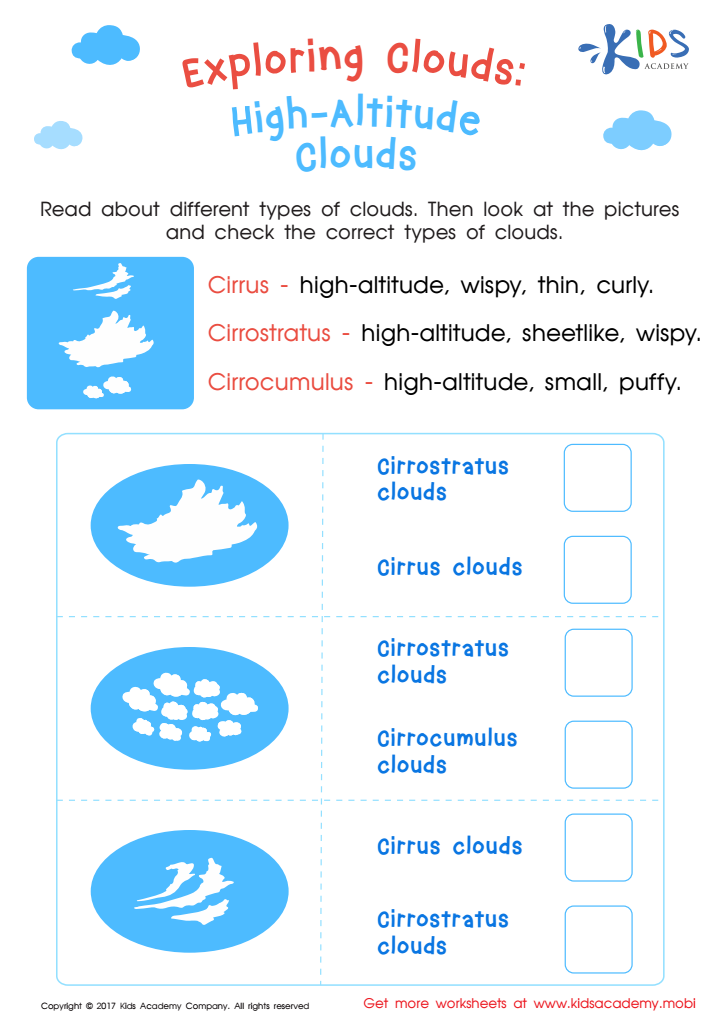

Exploring Clouds: High Altitude Clouds Worksheet
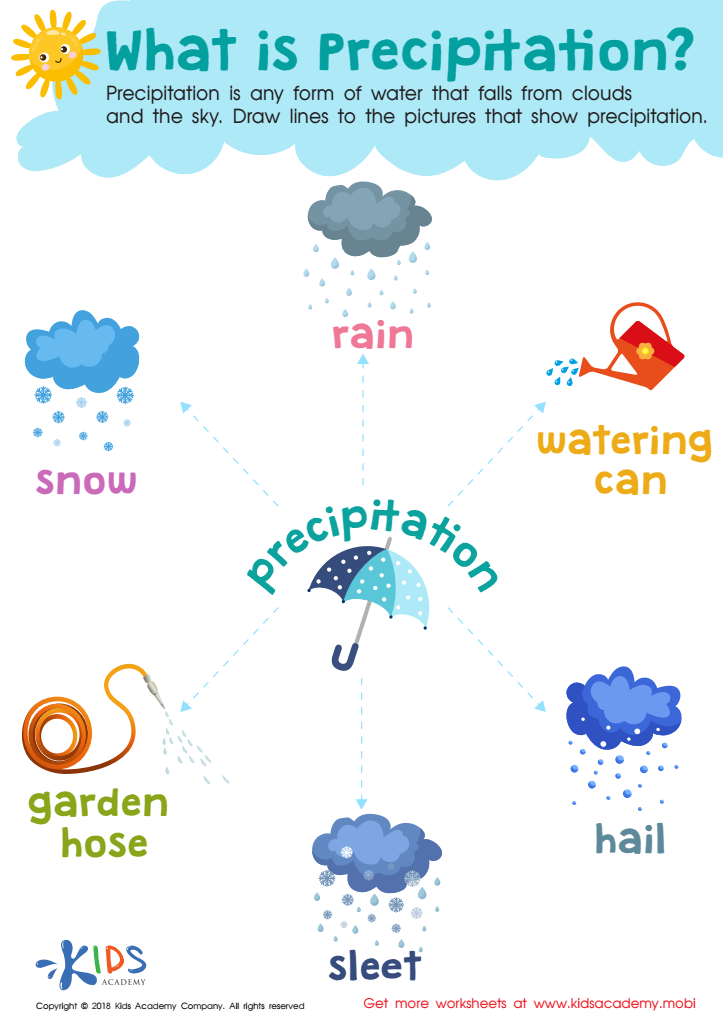

What Is Precipitation? Worksheet
Expanding vocabulary related to "Our Planet and Environment" for children aged 3-8 is crucial for several reasons. First, during these early years, children's brains are highly receptive to new information, making it an ideal time to introduce concepts that will have lifelong relevance. By learning words like "recycle," "conserve," and "habitat," children gain a foundational understanding of environmental issues that will influence their attitudes and behaviors in the future.
Second, vocabulary development is strongly linked to overall cognitive growth and academic success. Words related to our planet and environment help to enhance critical thinking and comprehension skills. When children understand environmental terms, they can better grasp the interconnectedness of natural systems, which is vital for subjects like science and geography.
Engaging children with this vocabulary also promotes environmental stewardship from a young age. When children are familiar with these concepts, they are more likely to adopt eco-friendly practices and inspire their families and communities to do the same. Additionally, discussing these topics fosters a sense of wonder and responsibility, encouraging children to care for their surroundings.
In summary, expanding environmental vocabulary equips young minds with essential language and concepts that benefit their education, cognitive development, and ethical growth, cultivating a generation more attuned to and responsible for the Earth.

 Assign to My Students
Assign to My Students







